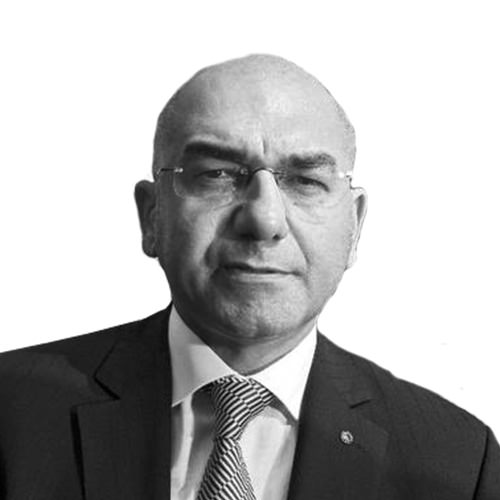The most important country of the European Union, Germany will also shoulder the EU Council presidency in July 2020. Within the last few months, m
The most important country of the European Union, Germany will also shoulder the EU Council presidency in July 2020. Within the last few months, ministries in Germany have already begun to prepare for the EU Council presidency term. With plans on hand for every subject, Berlin also has plans for Turkey. Because of this, they are holding back on certain subjects that were supposed to be handled in 2019. At Germany’s request, the EU is in a passive state regarding decisions related to Turkey. For example, the customs tariff treaty has to wait for Germany’s EU Council presidency at the request of Berlin. Germany has a very long do-to list for its six-month presidency.
Experienced EU member countries tend to keep their lists rather short since they know that when it comes to the term presidency, the first two and last two months are not very useful. Small and inexperienced states, however, due to overexerting their lists and putting too much emphasis on the term presidency, tend to be unsuccessful.
Germany is intending to utilize this Council presidency for the federal Bundestag elections that will be held in 2021.
However, there is a problem. Are the elections that were intended to be held in 2021 really going to be held in 2021? The answer to this question is not clear because of serious problems with the federal government. Chancellor Angela Merkel is not going to be a candidate for chancellor in 2021. German Defense Minister and new Christian Democratic Union (CDU) President Annegret Kramp-Karenbauer, who is the candidate Merkel has envisaged, has already “gotten old.” The number of CDU and Christian Social Union (CSU) members that are unwilling to see her as chancellor is increasing with every passing day. This situation is not ordinary for CDU voters.
The Social Democratic Party (SDP), which is the partner of the federal government that is getting smaller by losing voters every day, is bothered by itself right now. At the beginning of December, for the first time in its history, it is not going to elect just one president but instead will elect co-presidents. To select the co-president candidates, one of whom is female and the other is male, a vote was held among 425,000 SPD members. In such an important election, only 53% of the members participated and none of the co-president duos received sufficient votes. Because of this, between two co-president duos that received the most votes, a new vote is being cast. The 425,000 SPD members now have the opportunity to elect their co-presidents by voting on Nov. 19 and 30. The election results will be announced on Nov. 30. The delegates within the SPD congress that will be held after the vote must confirm this result. In reality, the co-president election is also an election for whether the party should continue with the coalition or move to the opposition. After electing its co-presidents, the SPD, in any case, has to sit down and bargain with CDU and CSU based on its party base’s disposition, since the majority of the SPD base is already against the coalition. If the coalition is to be continued, there is the expectation of fresh negotiations on terms for the coalition.
In this case, it seems there is going to be a governmental crisis. The CDU and CSU will not find a warm reception in having to negotiate a signed coalition agreement which is valid until the 2021 elections. However, there is another reality: if there is an early election, centrist parties like the CDU, CSU and SPD know very well that they are going to lose. Perhaps because of this, these three parties know very well that they have to cooperate to remain in government.
The CDU held its party congress in Leipzig last weekend. The new president of CDU, Kramp-Karrenbauer, in an unaccustomed fashion had to ask “the question of trust” to CDU delegates. Only by this question could she manage to receive the applause of all the delegates after her speech, which was longer than expected. Former Federal Assembly group president during the 2000-2004 period, Friedrich Merz, who is her rival in both the presidency and the chancellorship races, also cooperated with Kramp-Karrenbauer this time. The suggestion of electing the chancellor candidate by a vote of all members in the CDU congress has been rejected. Both Kramp-Karrenbauer and Merz remained faithful to the decision that the chancellor candidate should be determined in 2020.
While all of this was happening, CSU President and Bavaria Province President Markus Söder – who would not surprise us if he made a sudden move in 2020 into the chancellorship race as the joint candidate of CDU and CSU – received significant attention when he arrived at the CDU congress as if he were the CDU president. Let us take this detail as a side note for now. If the presidential candidate of CDU and CSU comes from CSU in 2020, nobody should be surprised.
However, due to all of the above developments that we have noted, Germany’s EU Council presidency that will begin in July 2020 is not a very popular subject for now. However, for the CDU and CSU it seems it is going to play a very important role.
Merkel’s failure in the latest federal elections diminished her influence within the EU. In order for the new chancellor of Germany to be influential and powerful again, the chancellor first must become successful in Germany. However, for them to win the elections in Germany, the term presidency of the EU Council has to be successful.
In short, it will be possible to detect the performance of Germany’s new chancellor candidate through the EU Council presidency.
